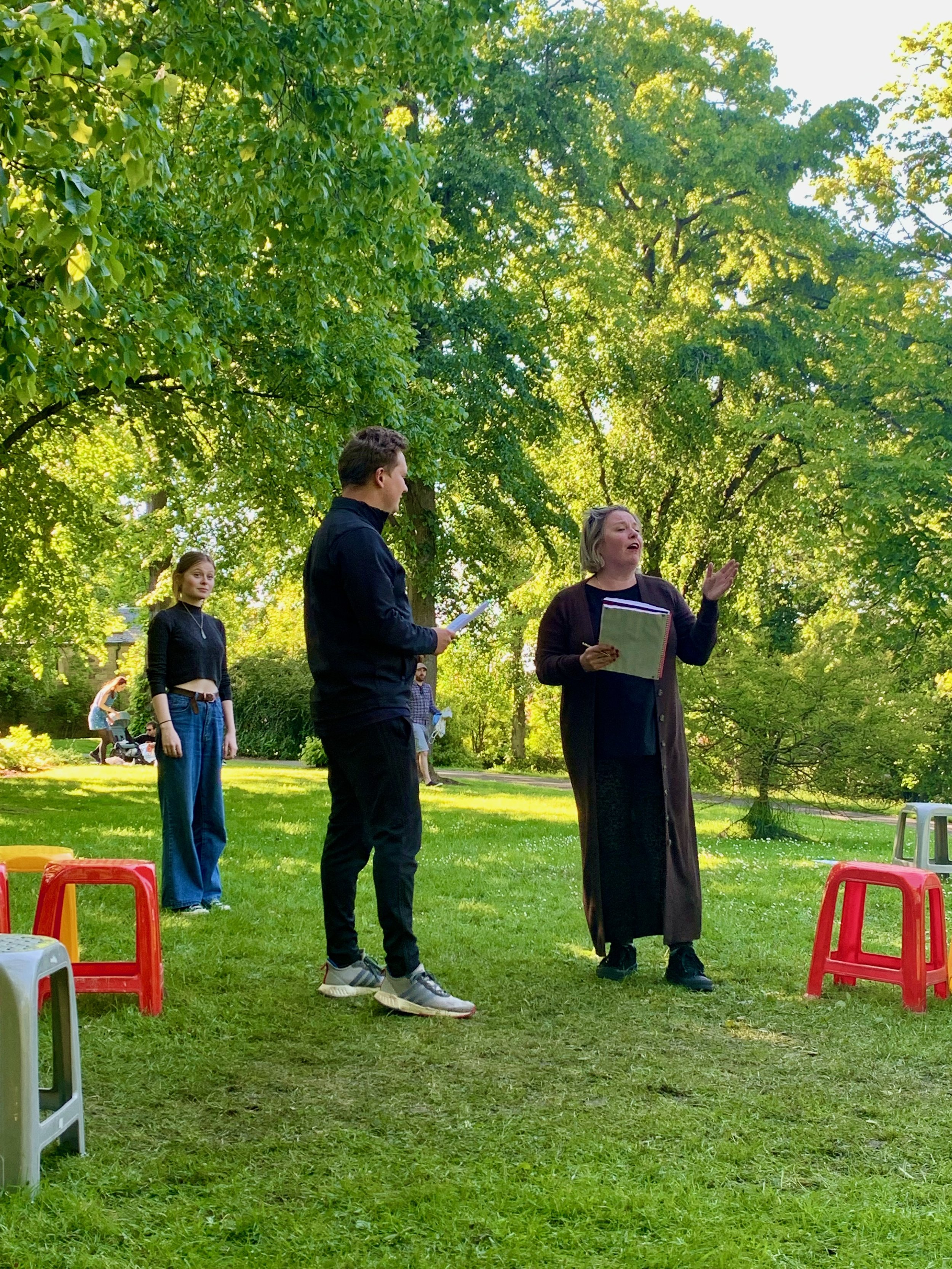These Headstrong Women
/These Headstrong Women: Bard in the Botanics unveils ambitious programme for 2017 festival
Building on Bard in the Botanics’ recent cross gender productions, the 2017 festival brings a fresh eye to a contrasting quartet of Shakespeare’s plays
Bard in the Botanics, Scotland’s only dedicated annual Shakespeare Festival, has unveiled its most ambitious season yet. The programme, which was announced today, 25 April 2017, will feature four new productions: the first ever Scottish professional performances of Timon of Athens, a four-hander Measure for Measure and new takes on two of the most well known of the Bard’s plays. The 2017 festival opens on Friday 23 June and runs until Saturday 29 July with performances outside on the main stage and in the iconic Kibble Palace.
These Headstrong Women opens with a pairing of one of the most famous and one of the least performed of the Bard’s works. On the main stage Artistic Director, Gordon Barr, will direct a new production of Taming of the Shrew? Barr’s adaptation will combine Shakespeare’s ‘Shrew’ with material from The Woman’s Prize or The Tamer Tamed, John Fletcher’s early 17th century feminist response to the original play. Meanwhile, in the Kibble Palace Jennifer Dick will present the first professional performances in Scotland of Timon of Athens. Both productions open on Friday 23 June (with earlier preview performances) and run until Saturday 8 July.
The second pairing premieres on Friday 14 July (with earlier preview performances) and runs until Saturday 29 July. It brings together perhaps the greatest of the Shakespearian tragedies with one of the problem plays. Jennifer Dick has adapted and will direct Queen Lear. Three years in the development this new main stage production will see an isolated Queen battling the loss of her place, position and, most terrifyingly, her reason.
Meanwhile, Barr will stage a four-hander Measure for Measure - Shakespeare’s explosive and prescient drama of blackmail, sexual scandal and political intrigue - in the Kibble Palace.
“At Bard in the Botanics, we believe it is so important for us to be presenting a season of work which puts women at the heart of all the stories we are telling,” says Bard in the Botanics Artistic Director, Gordon Barr. “The time is right for a conversation about the opportunities for women in classical theatre and their representation on stage. It’s a conversation which has already started in England and, as Scotland’s foremost producer of Shakespeare, we want to be leading the way in this country.
“There is absolutely no reason why a female actor can’t play Lear or Timon or why the worlds represented onstage in modern productions of classical texts shouldn’t be more reflective of the world we live in today. We have proven this so many times in the past at Bard in the Botanics – with female actors playing iconic roles like Coriolanus, Bolingbroke, Mephistopheles and more.”
“Now it’s time to put that message at the heart of our work. Women should not be confined to the roles of wife or daughter. We need to see them as rulers, leaders, politicians, fighters – everything they are in the world today.”
“The plays in this year’s season are a great mix for audiences. We have plays with female characters already at the heart of their stories and others where major roles have been cross-gendered to explore the story from a different angle. We are also continuing our ongoing commitment to stage all of Shakespeare’s plays, with Timon of Athens not only making its Bard in the Botanics debut but also, we believe, its professional Scottish premiere – at least in recent times. The play resonates so clearly with the modern world that it seemed the ideal time to offer audiences the chance to experience this rarely-seen story.”
“In a season celebrating women, it might seem strange to stage such a controversial story as The Taming of the Shrew but, for us, it’s important not to shy away from some of the difficulties in the representation of women in Shakespeare’s plays.,” adds Barr. “Also, I was fascinated to discover it might already have been considered fairly controversial in its day. John Fletcher’s “sequel” – The Tamer Tamed – is a very modern, feminist riposte to Shakespeare’s play from the early 17th century, and so the idea was born to incorporate material from this later play and give the women in the story a chance to fight back.
“This new adaptation continues our “Writing the Renaissance” series, which started last year with Marlowe’s Doctor Faustus and which explores the playwrights who influenced and were influenced by Shakespeare – and this is certainly going to be a version of Shrew like no one has ever seen before!”
“This season features some remarkable female actors playing some incredible roles, and whether those roles were originally female or have been reinterpreted from a female perspective, all of this year’s productions will feature Bard in the Botanics’ trademark bold, accessible style, bringing these stories to life afresh for modern audiences.”











